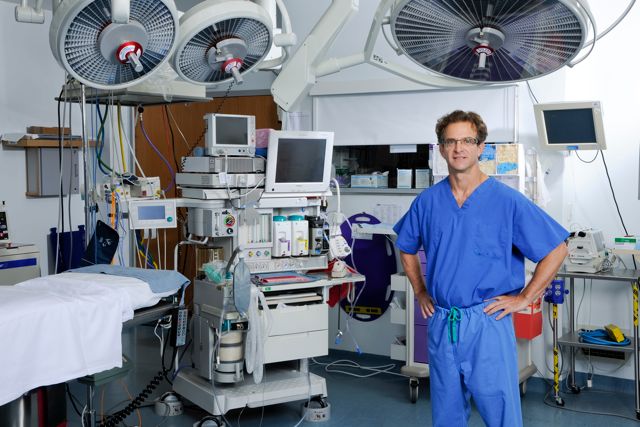It’s not uncommon to want to know what to expect after hernia surgery and how long recovery will take. Of course, the answer is always “It depends.”
It depends on:
The type of hernia you have.
The type of hernia repair chosen for your case.
Your age, overall health.
Your surgeon’s experience.
Let’s discuss what you need to know for setting proper post-op hernia repair expectations.
Umbilical,
epigastric and small
ventral hernias are the least painful types of hernias to recover from. If they are painful after surgery the pain rarely is significant for longer than 36 hours. Return to work can often be achieved within a few days.
Inguinal and
femoral hernias are quite variable in the severity and duration of pain after surgery. The surgeon's experience is critical in minimizing the experience of pain after surgery. Typically 3-7 days after surgery, patients have minimal discomfort and are able to return to work.
Large ventral incisional hernias have the highest chance for significant pain after surgery.
Robotic technology and extensive surgeon experience is clearly reducing the pain and recovery time after repair of these hernias.
At Center for Hernia Repair, our emphasis is on making your experience as painless as possible. Most patients will not require prescription pain medication after outpatient hernia surgery. You can read more about OTC (over the counter) medications on our
pain medication page
This varies with different hernias and techniques.
Typically, there is no particular post hernia surgery care necessary for recovery from hernia surgery. The surgeon typically closes the skin with absorbable materials. The skin heals well without any special care other than routine hygiene.
Your incision will usually be sealed with a skin sealant and no dressing is required in this case. If there is a dressing, this should be removed in 1-2 days and no further dressing is necessary unless instructed otherwise. Showering and bathing can be enjoyed 24 hours after surgery.
This varies with different hernias and techniques.
Inguinal and femoral hernia repairs are typically associated with very minor swelling and it resolves with 2 weeks. Post hernia surgery swelling is always expected in male inguinal hernias that extend into the scrotum. The degree of swelling varies with the size of the hernia.
Umbilical and epigastric hernias have minimal swelling that is often not noticeable.
Large ventral incisional hernias are often associated with swelling. Newer robotic techniques are decreasing the incidence of swelling and discomfort or pain after surgery.
This varies with different hernias and techniques.
Post hernia surgery diet restrictions are minimal. Depending on the anesthesia and type of repair there is often loss of appetite for a short duration of time. Smaller than usual meals are recommended for the first couple of days after surgery. There is no specific foods that need to be avoided.
After large ventral hernia repairs, it is often recommended to drink only liquids for a few days after surgery. Most people enjoy eating whatever they choose within days after their surgery.
You may resume driving three days after surgery. However, this is only possible if you are not experiencing disabling pain or taking prescription
pain medication.There is no restriction to normal daily activities immediately after surgery. We encourage you to walk and walk up and down stairs as long as you are not limited by your discomfort. Lifting up to 20 pounds can be performed immediately after surgery without negatively impacting the results. Sports and exercise limitations vary with the hernia surgery performed and the individual’s inherent strength. The activity limitations after hernia repair are based on avoiding undue stress in the area of repair. Three months after surgery, all hernia repairs are completely healed and rarely should there be any limitation in activity after this time.
For those patients that work in an office setting without a lot of physical work, it is reasonable to return to work in 3 - 7 days if you are not requiring prescription pain medication.
Patients who work in a physically demanding setting need to follow a return to work schedule and restrictions. This will be determined by their physician on a case-by-case basis.
The list below is a simplified description of problems that can occur after hernia surgery. All of the different types of hernias and unique operations to repair them have different types of complications. In experienced hands , the incidence of all post hernia surgery complications is lowered significantly.
-More severe or more prolonged pain then expected
-Urinary retention (inability to urinate)
-Infection – (rare) Risk lowered further with newer robotic techniques.
-Bleeding – (rare) Rarely significant enough to require reoperation.
-Intestinal injury – (rare) Robotic surgery has lowered this risk considerably.
-Recurrence of the hernia – Incidence varies with different hernias, techniques, and the surgeon’s experience.
At the Center for Hernia Repair, we specialize in a variety of
hernia repair techniques and prioritize patient comfort and satisfaction.
Dr. Yunis relies on his 30 years of experience and expertise to offer his patients customized treatment plans that suit their needs.
